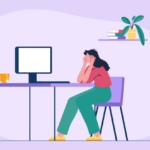It’s no secret that caffeine is a popular way to get an energy boost. But relying on coffee and other caffeinated beverages can lead to dependency, health problems, and even anxiety.
So why not take a break from the java? There are plenty of ways to feel energized without caffeine—all you have to do is give them a try!
From simple lifestyle changes like getting enough sleep and eating healthy foods, to more unconventional ideas such as aromatherapy or using essential oils, there are lots of natural ways you can increase your energy levels.
1. Exercise
Regular physical activity is one of the best ways to naturally increase energy.
Studies have shown that just 30 minutes of exercise per day can significantly improve energy levels, reduce fatigue and even promote better sleep.
Try taking walks during your lunch break or going for a swim after work. Whatever form of exercise you decide on, make sure you’re consistent in order to get the most benefit.
2. Healthy Diet
Eating a balanced, nutritious diet is essential for maintaining energy levels throughout the day.
Make sure to include plenty of fruits and vegetables, healthy proteins like eggs and fish, complex carbohydrates such as whole grain breads and pastas, and good fats like olive oil or avocados in your meals.
Avoid processed foods high in sugar, salt and fat which can cause a crash in energy levels.
3. Meditation
Meditation has been shown to reduce stress, improve concentration and boost energy levels.
Taking just 10 minutes a day to sit quietly and focus on your breathing can help clear your mind and give you more mental clarity.
There are many different forms of meditation, so it’s worth experimenting to find out which one works best for you.
If you need an easy access point, there are dozens of meditation apps that can guide you through the process, right from your phone.
4. Take a Nap
Research shows that taking a short nap during the day can increase alertness and improve overall performance.
Aim for about 20 minutes of sleep, as any longer may leave you feeling groggy afterward.
The best time for a power nap is usually around mid-afternoon when your energy levels start to dip.
5. Get Outside
Spending time in nature has been linked to improved mental and physical wellbeing.
Take a break from your computer screen and go for a walk or hike in the park, visit a nearby beach, or just spend some time in your backyard.
Even if it’s only for 10 minutes, being outside can give you a much needed energy boost.
6. Aromatherapy
Aromatherapy is the practice of using essential oils to promote healing and relaxation.
Different scents can have different effects on your mood, so experiment to find out which ones work best for you.
For an energizing effect, try citrus or minty aromas such as lemon, lemongrass, or peppermint.
7. Hydrate
Staying hydrated is essential for maintaining energy levels throughout the day.
Aim to drink at least 8 glasses of water per day to keep your body and brain functioning at its best.
If plain water isn’t your thing, try adding some lemon or a few mint leaves for flavor.
While it may seem like coffee or caffeinated teas are the only option for success, sometimes plain water is all you need to get your body going.
Click here – Important things to consider before hiring a tutor for your 1st grader.
8. Cannabis
Cannabis can help reduce anxiety and stress, while also providing an energy boost.
There are many different strains of cannabis available that offer uplifting effects.
But keep in mind that the effects of cannabis vary from person to person, so it’s important to take into consideration your own sensitivity before using it as a way to get energized.
For more tips on cannabis for energy, check out this guide: sativa cannabis guide.
9. Supplements
Certain vitamins and minerals can help you stay energized throughout the day.
Foods like spinach, kale, and eggs are good sources of B Vitamins, which are known for their energy-boosting properties.
Magnesium is another important mineral that helps your body convert food into energy, so be sure to include foods like nuts and seeds in your diet.
Conclusion
Finding ways to feel energized without relying on caffeine can be difficult, it’s definitely not impossible.
By taking a holistic approach and changes to your lifestyle such as eating a healthy diet exercising regularly and getting enough sleep you can get the energy boost you need without resorting to caffeine.
Ultimately, the most important thing to remember is that everyone’s body and lifestyle needs are different so it’s important to experiment and find out what works best for you.
With some patience and dedication, you can find healthy ways to increase your energy without relying on caffeine!






